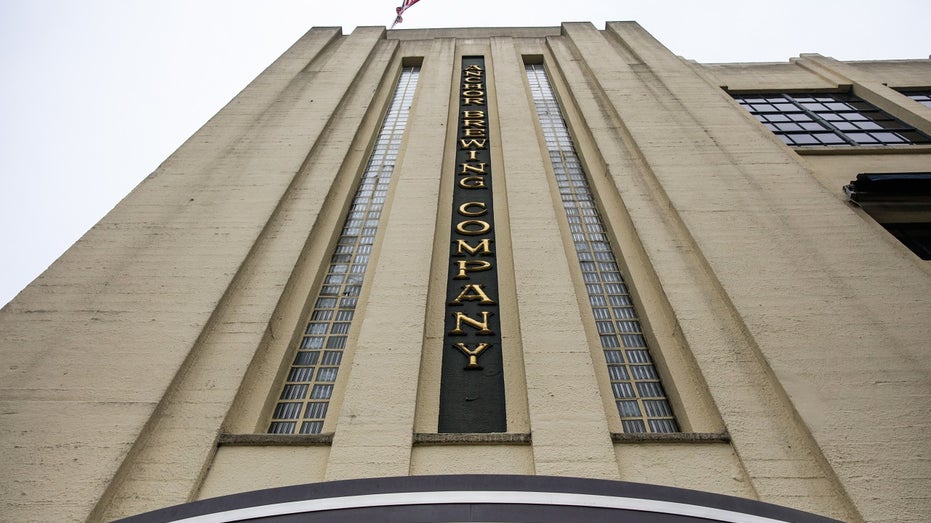Anchor Brewing Company Shuttering: What Does This Mean For The Craft Beer Industry?

Table of Contents
The Impact of Anchor's Closure on the Craft Beer Market
Anchor's closure leaves a significant gap in the market, particularly within the premium, heritage craft beer segment. Its demise impacts market share, intensifies competition among remaining breweries, and raises concerns about the overall health of craft beer sales. The loss of such a well-established brand isn't just about numbers; it's about the loss of a cultural icon and a significant player in shaping the American craft beer scene.
- Loss of a significant brand and its market share: Anchor Brewing held a notable position in the craft beer market, particularly in its region. Its disappearance creates an opening for other breweries to compete for its former customers.
- Increased competition for remaining craft breweries: The closure increases pressure on existing breweries to attract consumers who previously enjoyed Anchor's products. This heightened competition could lead to price wars or increased marketing efforts.
- Potential shift in consumer preferences and purchasing habits: Consumers may shift their loyalty to other brands, potentially favoring larger, more established breweries or exploring new, smaller craft breweries.
- Impact on distribution networks and supply chains: Anchor's closure will affect its distribution network and may create opportunities for other breweries to secure better placement in retail stores and bars.
- Opportunities for smaller, independent breweries to expand: The market space left by Anchor could provide a chance for smaller, independent breweries to gain market share and grow their businesses.
Economic Factors Contributing to Anchor's Demise
The economic pressures facing breweries are undeniable, and these factors played a significant role in Anchor's closure. Rising production costs, inflation, supply chain disruptions, and evolving consumer spending habits all contributed to the brewery's financial struggles. The craft beer industry, while experiencing growth in certain segments, isn't immune to these broader economic forces.
- Rising costs of raw materials (hops, barley, etc.): The cost of essential ingredients has increased significantly in recent years, squeezing profit margins for breweries.
- Increased energy and transportation costs: These costs directly impact a brewery's bottom line, increasing the expense of production and distribution.
- Inflationary pressures impacting consumer purchasing power: Inflation has reduced consumer disposable income, leading to decreased spending on premium products like craft beer.
- Difficulties in securing consistent supply chain operations: Supply chain disruptions have affected the availability of raw materials and packaging, leading to increased costs and production delays.
- Changing consumer preferences toward more readily available and cheaper options: Consumers are increasingly drawn to more affordable beer options, impacting the sales of higher-priced craft beers.
The Role of Consolidation in the Craft Beer Industry
The trend of larger breweries acquiring smaller craft breweries is a significant factor impacting the industry landscape. This consolidation reduces the number of independent breweries and can lead to a homogenization of beer styles and flavors. Anchor's closure fuels the debate about whether this trend is ultimately beneficial or detrimental to the long-term health and diversity of the craft beer sector.
- Increased acquisition activity by large beer companies: Major players in the alcohol industry actively acquire craft breweries, often leading to the loss of unique brand identities.
- Reduction in the number of independent breweries: Consolidation reduces the diversity of breweries, potentially leading to less innovation and a narrowing of available beer styles.
- Potential loss of unique brewing styles and traditions: When smaller breweries are acquired, there’s a risk of losing unique recipes and brewing techniques.
- Impact on consumer choice and availability of diverse craft beers: Consolidation can limit consumer choices and reduce the availability of distinctive craft beers.
The Future of Craft Beer: Lessons Learned from Anchor's Closure
Anchor's closure serves as a cautionary tale for the craft beer industry. It highlights the importance of adaptation, innovation, sustainable practices, and cultivating strong brand loyalty in a dynamic market. The future of craft beer depends on the industry's ability to navigate these challenges effectively.
- Importance of adapting to changing consumer preferences: Breweries need to stay attuned to consumer tastes and be willing to experiment with new styles and flavors.
- Need for innovation in brewing styles and marketing strategies: Innovation in both brewing and marketing is crucial for attracting and retaining customers in a competitive market.
- Focus on building strong brand loyalty and community engagement: Cultivating strong relationships with consumers through community engagement and brand storytelling is vital for long-term success.
- Implementing sustainable and environmentally friendly practices: Consumers increasingly value sustainability, and breweries that adopt eco-friendly practices will likely attract a loyal customer base.
- The need for financial stability and diversified revenue streams: Strong financial planning and diversifying revenue streams (e.g., taprooms, merchandise, events) are critical for resilience in challenging economic times.
Conclusion
The closure of Anchor Brewing Company serves as a stark reminder of the challenges facing the craft beer industry. Economic factors, market consolidation, and evolving consumer preferences all contribute to a complex and competitive landscape. The industry must adapt to these challenges to ensure its continued success and diversity. Anchor's legacy should inspire a renewed focus on supporting independent breweries and celebrating the unique character of craft beer. Let's learn from this significant event and work together to ensure the future of craft beer remains vibrant and diverse. Support your local breweries and discover the next generation of craft beer innovators!

Featured Posts
-
 Covid 19 Test Fraud Lab Owners Guilty Plea
Apr 28, 2025
Covid 19 Test Fraud Lab Owners Guilty Plea
Apr 28, 2025 -
 A Look Back 2000 Yankees Vs Royals A Pivotal Victory
Apr 28, 2025
A Look Back 2000 Yankees Vs Royals A Pivotal Victory
Apr 28, 2025 -
 Denise Richards Husband Facing Pressure To Disclose Bank Records
Apr 28, 2025
Denise Richards Husband Facing Pressure To Disclose Bank Records
Apr 28, 2025 -
 Ai Digest Transforming Repetitive Documents Into Engaging Poop Podcasts
Apr 28, 2025
Ai Digest Transforming Repetitive Documents Into Engaging Poop Podcasts
Apr 28, 2025 -
 E Ink Spectra
Apr 28, 2025
E Ink Spectra
Apr 28, 2025
